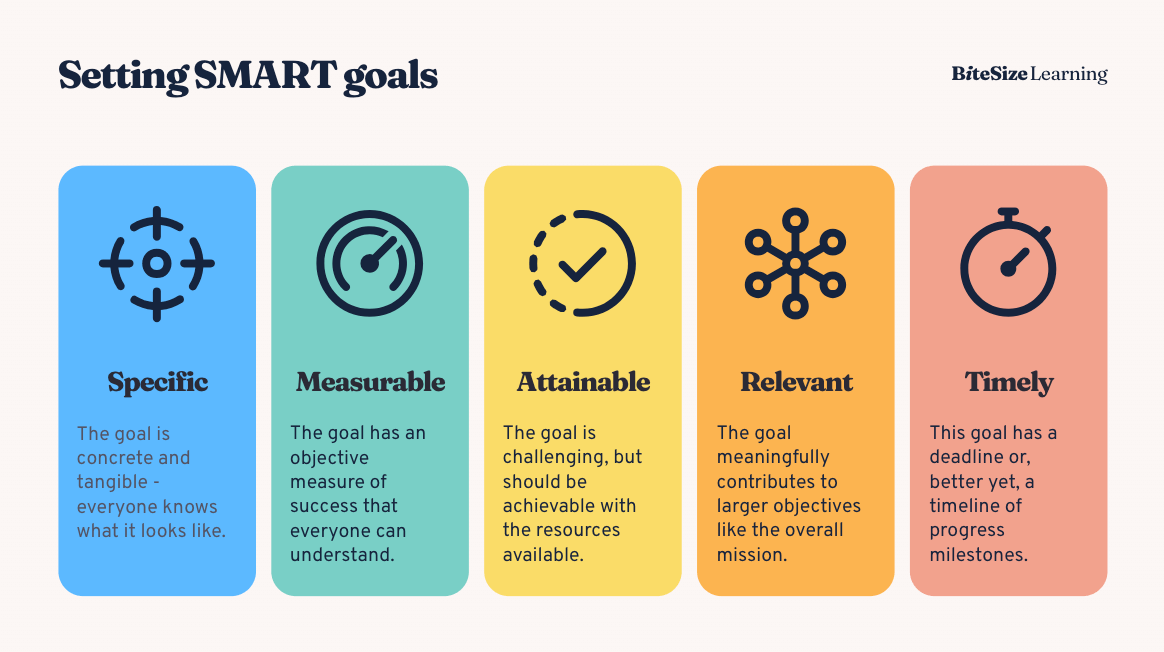Welcome Back to Lancaster: Tips for a Smooth Transition After Easter Break
Posted on 22 April, 2024 by Administrator All PostsAs students return to Lancaster after a refreshing Easter break, adjusting back to university routines can be challenging. This blog offers practical tips to ease back into academic responsibilities while maintaining the rejuvenation of the break. We'll cover how to organise your study schedule, reconnect with peers, and engage with campus life to make the most out of the remaining term.

#1 | Re-establish a Routine
Returning to university after a break can feel like a fresh start, making it the perfect time to re-establish a structured daily routine. A well-planned routine not only enhances productivity but also helps in reducing stress by bringing a predictable rhythm to your day. Here are some practical tips to help you set up an effective routine that balances classes, study times, and essential breaks.

1. Assess Your Current Schedule
Start by taking a look at your class timetable and any regular commitments you have. Understanding when you are busiest and identifying your free periods will help you to allocate time more effectively.
2. Allocate Time for Studying
For each course, block out time in your schedule dedicated exclusively to studying. This includes time for reading, writing assignments, and reviewing lecture notes. Try to align your study times with when you are most alert and productive. For instance, if you're a morning person, schedule challenging study tasks before noon.
3. Incorporate Regular Breaks
It’s important to include short breaks to prevent burnout—especially during long study sessions. Apply the Pomodoro Technique by working for 25 minutes and then taking a 5-minute break. Every few cycles, take a longer break of 15 to 30 minutes. These breaks are crucial for maintaining high levels of concentration and for mental rejuvenation.
4. Set Aside Time for Meals and Personal Care
Meals and personal care activities like showering and exercising should also have their own time slots in your daily schedule. These activities are essential for your well-being and can provide necessary breaks from academic tasks.
5. Be Flexible but Consistent
While it’s good to have a routine, flexibility is key. Unexpected tasks or opportunities might arise, and your schedule should have enough flexibility to accommodate these changes. However, try to be consistent with your sleep and wake-up times to establish a natural rhythm for your body.
6. Review and Adjust Weekly
At the end of each week, review your schedule to see what’s working and what isn’t. Adjust your routine as necessary to improve both your productivity and your ability to enjoy down time.
7. Use Tools to Stay Organised
Utilise planners, apps, or digital calendars to keep your schedule organised and accessible. Tools like Google Calendar can be particularly helpful as they allow you to set reminders for upcoming classes or study sessions and can be accessed from multiple devices.
By re-establishing a structured daily routine, you not only set yourself up for academic success but also ensure that you have enough time for self-care and leisure, which are just as important for a balanced university life.
#2 | Goal Setting

Setting realistic and clear goals for the remainder of the semester is a powerful way to enhance focus and motivation. Goals give you direction and a benchmark to measure your progress, which can be incredibly motivating and rewarding. Here are some steps to help you set effective goals that align with your academic and personal aspirations.
1. Identify Your Priorities
Begin by identifying what's most important to you this semester. Are you looking to boost your grades, get involved in extracurricular activities, or perhaps improve your time management skills? Understanding your priorities helps in setting goals that are meaningful and motivating.
2. Set SMART Goals
Ensure that your goals are Specific, Measurable, Achievable, Relevant, and Time-bound (SMART). For example, instead of saying "I want to do better in math," a SMART goal would be "I aim to improve my math grade from a B to an A by the end of the semester through weekly practice sessions and seeking help from a tutor."
3. Break Goals into Manageable Tasks
Large goals can seem overwhelming, so break them down into smaller, manageable tasks. For instance, if your goal is to join a new club, your tasks could include researching different clubs, attending a first meeting, and then committing to regular participation.
4. Write Your Goals Down
There’s great power in writing your goals down. This makes them more concrete and serves as a constant reminder of what you aim to achieve. Keep your written goals in a place where you can see them often, like on your study desk or as a note in your phone.
5. Schedule Check-Ins
Regularly check in on your progress towards your goals. You could set a bi-weekly or monthly review session to evaluate where you stand and make adjustments if necessary. This helps to keep you on track and allows you to reflect on any changes you need to make to your approach.
6. Seek Support When Needed
Don’t hesitate to seek support from friends, family, or university resources. For example, if your goal is to improve your grades, consider forming study groups, attending additional tutoring sessions, or speaking with your professors for guidance.
7. Celebrate Your Achievements
Reward yourself when you achieve a goal or make significant progress. Celebrating your successes, big or small, can boost your confidence and motivate you to continue pursuing your goals.
By setting clear, achievable goals, you not only give yourself a clear path to follow but also create opportunities for personal growth and success. Goals are not just about achieving results; they are about growing as a student and as an individual. Start setting your goals today and take proactive steps towards a fulfilling and successful semester.
#3 | Utilise University Resources
Lancaster University offers a wealth of resources designed to support students in both their academic journeys and personal development. Leveraging these resources can significantly enhance your ability to meet your academic and personal goals. Here’s a look at some key supports available and how you can make the most of them.

1. Tutoring Centres
For students seeking academic enhancement, the tutoring centres provide invaluable support. These centres offer help in a wide range of subjects, providing one-on-one or group assistance to ensure you understand course material thoroughly. Whether you’re grappling with complex theories or need help preparing for exams, don’t hesitate to seek out these services.
2. Counselling Services
University life can be challenging, and it’s important to maintain your mental well-being. Lancaster University’s counselling services offer confidential help and are staffed by professionals skilled in dealing with common issues faced by students, such as stress, anxiety, and depression. These services can be a lifeline if you're feeling overwhelmed and need someone to talk to.
3. Study Groups
Participating in or forming study groups is another great way to tap into campus resources. Study groups encourage collaborative learning and can make tackling difficult subjects more manageable and engaging. Check your department’s notice boards or student forums to find existing groups or information on starting one.
4. Career Services
Planning for life after university is crucial, and the career services department can help. They provide resume reviews, career counselling, internship placement services, and more. Utilising these services can help you better understand your career options and what steps you need to take to pursue your desired career path.
5. Libraries and Research Facilities
Make full use of Lancaster University’s libraries and research facilities. These spaces are not just for borrowing books but are invaluable resources for access to academic journals, databases, and other research materials that can enhance your essays and projects. Many libraries also offer workshops on research methods and essay writing that can boost your academic skills.
6. Workshops and Seminars
Keep an eye out for academic workshops and seminars offered throughout the semester. These sessions can provide deeper insights into specific topics, as well as help you develop new skills such as coding, statistical analysis, or even public speaking.
7. Health Services
For physical health concerns, the university’s health services provide medical care, health consultations, and wellness programs. Staying healthy is crucial to maintaining your academic performance, so take advantage of these services to keep on top of your health.
By engaging with the resources available at Lancaster University, you can enhance your learning experience, receive support for personal challenges, and prepare effectively for your future career. Remember, these resources are part of your tuition fees, so you are already paying for them—make sure to use them to their fullest extent. Whether it’s seeking help from a tutor, joining a study group, or attending a workshop, each step you take is an investment in your success at university.
#4 | Stay Social
Transitioning back to university life after a break can sometimes feel a bit daunting, especially when you’re trying to regain your academic focus. However, maintaining an active social life is crucial not only for your well-being but also for enriching your overall university experience. Here’s how you can stay engaged and make the most out of the social opportunities available on campus.

1. Join Clubs and Societies
Lancaster University boasts a diverse range of clubs and societies that cater to a wide variety of interests—from sports and hobbies to academic and cultural groups. Joining one or more of these clubs is an excellent way to meet people with similar interests, learn new skills, and engage in fun activities outside of your studies. Whether you’re into photography, debating, or want to try something completely new, there’s likely a group for you.
2. Attend University Events
Keep an eye on the university calendar for upcoming events. These can range from guest lectures and networking events to social gatherings and cultural celebrations. Attending these events can not only break the monotony of a regular study routine but also broaden your academic and cultural horizons while providing opportunities to socialise.
3. Participate in Sports and Recreational Activities
Whether you are competitive in sports or just looking for a casual way to stay active, participating in university sports teams or fitness classes can greatly enhance your social life. These activities offer a healthy outlet for relieving academic stress and connecting with peers who share a passion for physical activity.
4. Engage in Volunteer Work
Volunteering is another wonderful way to meet people while giving back to the community. Many universities have volunteer centers that coordinate opportunities both on and off-campus. This can be especially fulfilling and a great way to make meaningful connections.
5. Explore Social Spaces on Campus
Make use of common areas and social spaces around campus. These are places where you can casually interact with fellow students and perhaps strike up new friendships. Coffee shops, libraries, and student lounges are great spots to find peers and engage in conversations.
6. Initiate Study Groups
Creating or joining study groups is another excellent way to stay socially active. Study groups can help you tackle difficult coursework while building relationships with classmates. It’s a productive way to combine academics and social interaction.
7. Attend Workshops and Social Mixers
Look out for workshops and social mixers offered by various departments. These events are designed to help students make connections, often in a more structured or academic context, which can lead to lasting friendships and professional relationships.
Staying social is an integral part of the university experience. It can enhance your emotional well-being, provide support networks, and add to a fulfilling university life. By taking the initiative to engage in various social activities, you ensure that your time at Lancaster University is not just academically rewarding but also personally enriching. So, dive into the social scene and make the most of the opportunities that come your way.
#5 | Health and Wellness
As students dive back into their academic routines at Lancaster University, it's crucial to maintain a balance between studying and personal well-being. Prioritising health and wellness can not only enhance your academic performance but also enrich your overall university experience. Here are some key strategies to ensure you stay healthy both physically and mentally throughout the semester.

1. Regular Exercise
Incorporating regular physical activity into your routine is one of the most effective ways to boost both your physical and mental health. Lancaster University offers various athletic facilities and programs ranging from team sports and fitness classes to gym memberships. Even simple activities like walking or cycling around campus can have significant health benefits, such as improving your mood, increasing energy levels, and reducing stress.
2. Balanced Diet
Eating a balanced diet is essential for maintaining energy, concentration, and overall health. Try to include a variety of foods in your meals to get the necessary nutrients your body needs. Lancaster’s student cafeterias and nearby markets offer a range of healthy eating options. Planning your meals can also prevent last-minute unhealthy eating decisions. If you're unsure about how to start, many universities offer nutrition counseling and workshops through their health services.
3. Sufficient Sleep
Never underestimate the power of a good night’s sleep, especially during your studies. Sleep is crucial for memory consolidation, emotional regulation, and physical health. Aim for 7-9 hours of quality sleep per night. Creating a bedtime routine can help regulate your sleep schedule, such as limiting screen time before bed, using relaxation techniques, or setting a consistent bedtime.
4. Mental Health Support
Lancaster University provides resources to support student mental health, including counseling and therapy services. These services offer a safe space to discuss any issues you might be facing, whether they’re related to university life or personal matters. Additionally, engaging in mindfulness or meditation practices can be very beneficial, and many universities offer courses or sessions on these topics.
5. Social Connections
Maintaining social connections plays a vital role in your mental well-being. Spending time with friends or participating in community activities can provide emotional support and reduce feelings of loneliness or stress. Don’t hesitate to join clubs or societies that align with your interests; these can provide a sense of belonging and community.
6. Time Management
Effective time management is key to balancing coursework with relaxation and leisure activities. Proper management can reduce stress and leave you with more time for self-care. Utilize planners, apps, or calendars to organize your tasks and commitments. Knowing when to take breaks and step away from your studies is important for preventing burnout.
Balancing academic responsibilities with personal well-being is essential for a successful and enjoyable time at university. By incorporating regular exercise, maintaining a balanced diet, ensuring sufficient sleep, and utilizing mental health resources, you can keep yourself healthy and motivated throughout your studies at Lancaster University. Remember, your health is just as important as your academic success, and maintaining a balance can lead to better outcomes both in and out of the classroom.
As you embark on another exciting semester at Lancaster University, remember that your well-being is the foundation of your academic and personal success. By taking steps to maintain a balanced lifestyle, you’re not only investing in your health but also enhancing your capacity to achieve your goals. Don't hesitate to utilise the various resources available on campus designed to support you in your journey. For more tips on health, wellness, and making the most of your university experience, visit our blog regularly and connect with us on social media. Remember, Mighty Student Living is here to help you every step of the way—reach out to us for any assistance or advice you might need to make your time at Lancaster as fulfilling and successful as possible.





